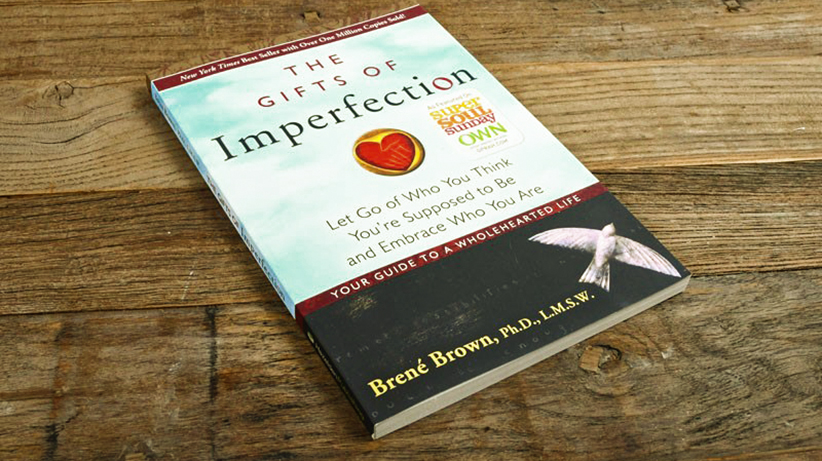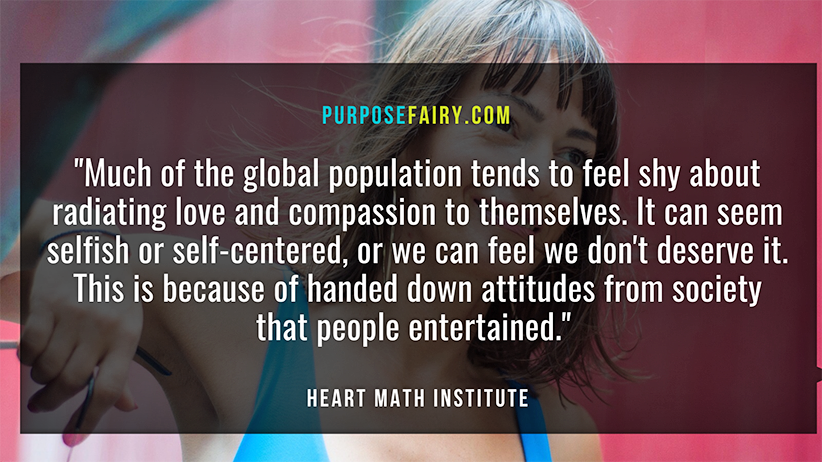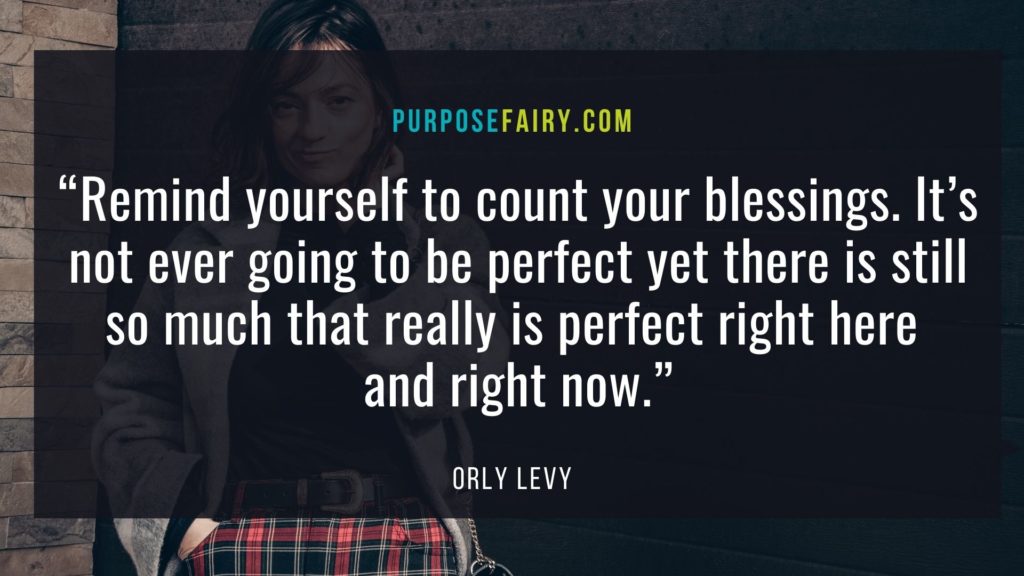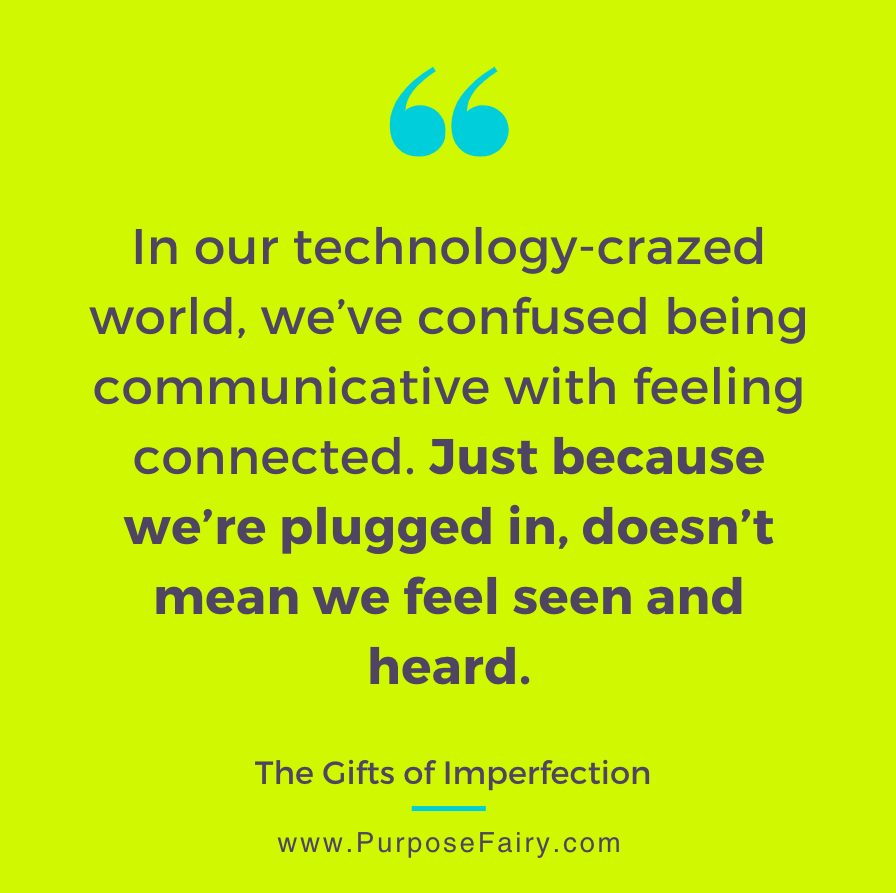
“Don’t ask what the world needs. Ask what makes you come alive, and go do it. Because what the world needs is people who have come alive.”~ The Gifts of Imperfection by Brené Brown
The Gifts of Imperfection
In a world that constantly bombards you with images of perfection and expectations of flawlessness, it’s easy to lose sight of your own innate worth. You find yourself striving to meet unattainable standards, battling insecurities, and feeling inadequate in your own skin. But what if, instead of chasing an elusive ideal, we embraced the beauty of your imperfections?
I know it’s not something that many people encourage you to do, but if there’s someone who will always do it, that’s Brené Brown. Through her book The Gifts of Imperfection, she reminds you that imperfection is not a flaw but a remarkable gift you possess. Your vulnerabilities, quirks, and uniqueness are what make you, YOU.
The Gifts of Imperfection: 39 Beautiful Reminders to Embrace Your Perfectly Imperfect Self
On Compassion and Wholehearted Living
“It’s hard for us to understand that we can be compassionate and accepting while we hold people accountable for their behaviors. We can, and, in fact, it’s the best way to do it.”~ The Gifts of Imperfection
“To practice courage, compassion, and connection is to look at life and the people around us, and say, “I’m all in.”
“Wholehearted living is about engaging with our lives from a place of worthiness. It means cultivating the courage, compassion and connection to wake up in the morning and think, ‘No matter what gets done and how much is left undone, I am enough.’ It’s going to bed at night thinking, ‘Yes, I am imperfect and vulnerable and sometimes afraid, but that doesn’t change the truth that I am also brave and worthy of love and belonging.”~ The Gifts of Imperfection
“We can confront someone about their behavior, or fire someone, or fail a student, or discipline a child without berating them or putting them down. The key is to separate people from their behaviors – to address what they are doing, not who they are.”~ The Gifts of Imperfection
“If we want to cultivate hopefulness, we have to be willing to be flexible and demonstrate perseverance. Not every goal will look and feel the same. Tolerance for disappointment, determination, and a belief in self are the heart of hope.”~ The Gifts of Imperfection
Authenticity demands Wholehearted living and loving—even when it’s hard, even when we’re wrestling with the shame and fear of not being good enough, and especially when the joy is so intense that we’re afraid to let ourselves feel it. Mindfully practicing authenticity during our most soul-searching struggles is how we invite grace, joy, and gratitude into our lives.”~ The Gifts of Imperfection
“We cannot ignore our pain and feel compassion for it at the same time.”~ The Gifts of Imperfection

“If we want to live a Wholehearted life, we have to become intentional about cultivating sleep and play, and about letting go of exhaustion as a status symbol and productivity as self-worth.”~ The Gifts of Imperfection
“When we become more living and compassionate with ourselves and we begin to practice shame resilience, we can embrace our imperfections.”~ The Gifts of Imperfection
On Connection and Perfectionism
“Shame, blame, disrespect, betrayal, and the withholding of affection damage the roots from which love grows. Love can only survive these injuries if they are acknowledged, healed and rare.”~ The Gifts of Imperfection
“We are wired for connection to thrive emotionally, physically, spiritually, and intellectually.”~ The Gifts of Imperfection
“Authenticity is the daily practice of letting go of who we think we’re supposed to be and embracing who we are. Choosing authenticity means cultivating the courage to be imperfect, to set boundaries, and to allow ourselves to be vulnerable; exercising the compassion that comes from knowing that we are all made of strength and struggle; and nurturing the connection and sense of belonging that can only happen when we believe that we are enough.
“Perfectionism is not the same thing as striving to be your best. It is not about healthy achievement or growth. Perfectionism is the belief that if we live perfect, look perfect, and act perfect, we can minimize or avoid the pain of blame, judgement, and shame.”~ The Gifts of Imperfection
“One of the greatest barriers to connection is the cultural importance we place on ‘going it alone’. Somehow we’ve come to equate success with not needing anyone. Many of us are willing to extend a helping hand, but we’re very reluctant to reach out for help when we need it ourselves.”~ The Gifts of Imperfection
“Laughter, song, and dance create emotional and spiritual connection; they remind us of the one thing that truly matters when we are searching for comfort, celebration, inspiration, or healing: We are not alone.”“Like the word hope, we often think of power as negative. It’s not. The best definition of power comes from Martin Luther King Jr. He described power as the ability to effect change.”~ The Gifts of Imperfection
“Perfectionism is armor. Perfectionism is not the same thing as striving for excellence and it’s not about healthy achievement and growth.”~ The Gifts of Imperfection
“Life paralysis refers to all of the opportunities we miss because we’re too afraid to put anything out in the world that could be imperfect. It’s also all of the dreams that we don’t follow because of our deep fear of failing, making mistakes, and disappointing others.”~ The Gifts of Imperfection
“Spirituality is recognizing and celebrating that we are all inextricably connected to each other by a power greater than all of us, and that our connection to that power and to one another is grounded in love and compassion. Practicing spirituality brings a sense of perspective, meaning and purpose to our lives.”~ The Gifts of Imperfection
“Perfectionism is not self-improvement. Perfectionism is, at its core, about trying to earn approval and acceptance. Most perfectionists were raised being praised for achievement and performance (grades, manners, rule-following, people-pleasing, appearance, sports). Somewhere along the way, we adopt this dangerous and debilitating belief system: I am what I accomplish and how well I accomplish it.”~ The Gifts of Imperfection
“In our technology-crazed world, we’ve confused being communicative with feeling connected. Just because we’re plugged in, doesn’t mean we feel seen and heard.”~ The Gifts of Imperfection
“The willingness to tell our stories, feel the pain of others, and stay genuinely connected in this disconnected world is not something we can do halfheartedly.”~ The Gifts of Imperfection
“Somehow we’ve come to equate success with not needing anyone. Many of us are willing to extend a helping hand, but we’re very reluctant to reach out for help when we need it ourselves.”~ The Gifts of Imperfection
“So many of us run around spackling all of the cracks, trying to make everything look just right…remember the beauty of the cracks…our imperfections are not inadequacies; they are reminders that we’re all in this together. Imperfectly, but together.”~ The Gifts of Imperfection
“Perfectionism is self-destructive simply because there is no such thing as perfect. Perfection is an unattainable goal.”~ The Gifts of Imperfection
On Truly Living a Meaningful Life
“People may call what happens at midlife “a crisis,” but it’s not. It’s an unraveling—a time when you feel a desperate pull to live the life you want to live, not the one you’re “supposed” to live. The unraveling is a time when you are challenged by the universe to let go of who you think you are supposed to be and to embrace who you are.”~ The Gifts of Imperfection
“If we want to make meaning, we need to make art. Cook, write, draw, doodle, paint, scrapbook, take pictures, collage, knit, rebuild an engine, sculpt, dance, decorate, act, sing – it doesn’t matter. As long as we’re creating, we’re cultivating meaning.”~ The Gifts of Imperfection
“We cannot selectively numb emotions, when we numb the painful emotions, we also numb the positive emotions.”~ The Gifts of Imperfection
“To love someone fiercely, to believe in something with your whole heart, to celebrate a fleeting moment in time, to fully engage in a life that doesn’t come with guarantees – these are risks that involve vulnerability and often pain.”~ The Gifts of Imperfection
“Many of us think that being mindful means not avoiding painful emotions. Mindfulness also means not over-identifying with or exaggerating our feelings.”~ The Gifts of Imperfection
“Squandering our gifts brings distress to our lives. As it turns out, it’s not merely benign or ‘too bad’ if we don’t use the gifts that we’ve been given; we pay for it with our emotional and physical well-being. When we don’t use our talents to cultivate meaningful work, we struggle.”~ The Gifts of Imperfection
“Ordinary courage is about putting our vulnerability on the line. In today’s world, that’s pretty extraordinary.”~ The Gifts of Imperfection
“Here’s the bottom line: If we want to live and love with our whole hearts, and if we want to engage with the world from a place of worthiness, we have to talk about the things that get in the way—especially shame, fear, and vulnerability.”~ The Gifts of Imperfection

“To become fully human means learning to turn my gratitude for being alive into some concrete common good. It means growing gentler toward human weakness. It means practicing forgiveness of my and everyone else’s hourly failures to live up to divine standards.
It means learning to forget myself on a regular basis in order to attend to the other selves in my vicinity. It means living so that “I’m only human” does not become an excuse for anything. It means receiving the human condition as blessing and not curse, in all its achingly frail and redemptive reality.”~ The Gifts of Imperfection
On Acceptance and Belonging
“The truth is: Belonging starts with self-acceptance. Your level of belonging, in fact, can never be greater than your level of self-acceptance, because believing that you’re enough is what gives you the courage to be authentic, vulnerable and imperfect.”
“Now I understand that in order to feel a true sense of belonging, I need to bring the real me to the table and that I can only do that if I’m practicing self-love. For years I thought it was the other way around: I’ll do whatever it takes to fit in, I’ll feel accepted, and that will make me like myself better. Just typing those words and thinking about how many years I spent living that way makes me weary. No wonder I was tired for so long!”~ The Gifts of Imperfection
“Our stories are not meant for everyone. Hearing them is a privilege, and we should always ask ourselves this before we share: “Who has earned the right to hear my story?” If we have one or two people in our lives who can sit with us and hold space for our shame stories, and love us for our strengths and struggles, we are incredibly lucky.”~ The Gifts of Imperfection
“Fitting in is about assessing a situation and becoming who you need to be to be accepted. Belonging, on the other hand, doesn’t require us to change who we are; it requires us to be who we are.”
“The heart of compassion is really acceptance. The better we are at accepting ourselves and others, the more compassionate we become.”~ The Gifts of Imperfection
“When I let go of trying to be everything to everyone, I had much more time, attention, love, and connection for the important people in my life.” “Authenticity is the daily practice of letting go of who we think we’re supposed to be and embracing who we are.”~ The Gifts of Imperfection
“Of this, I am actually certain. After collecting thousands of stories, I’m willing to call this a fact: A deep sense of love and belonging is an irreducible need of all women, men, and children. We are biologically, cognitively, physically, and spiritually wired to love, to be loved, and to belong. When those needs are not met, we don’t function as we were meant to. We break. We fall apart. We numb. We ache. We hurt others. We get sick.”~ The Gifts of Imperfection
Comments
E. F.
read more

